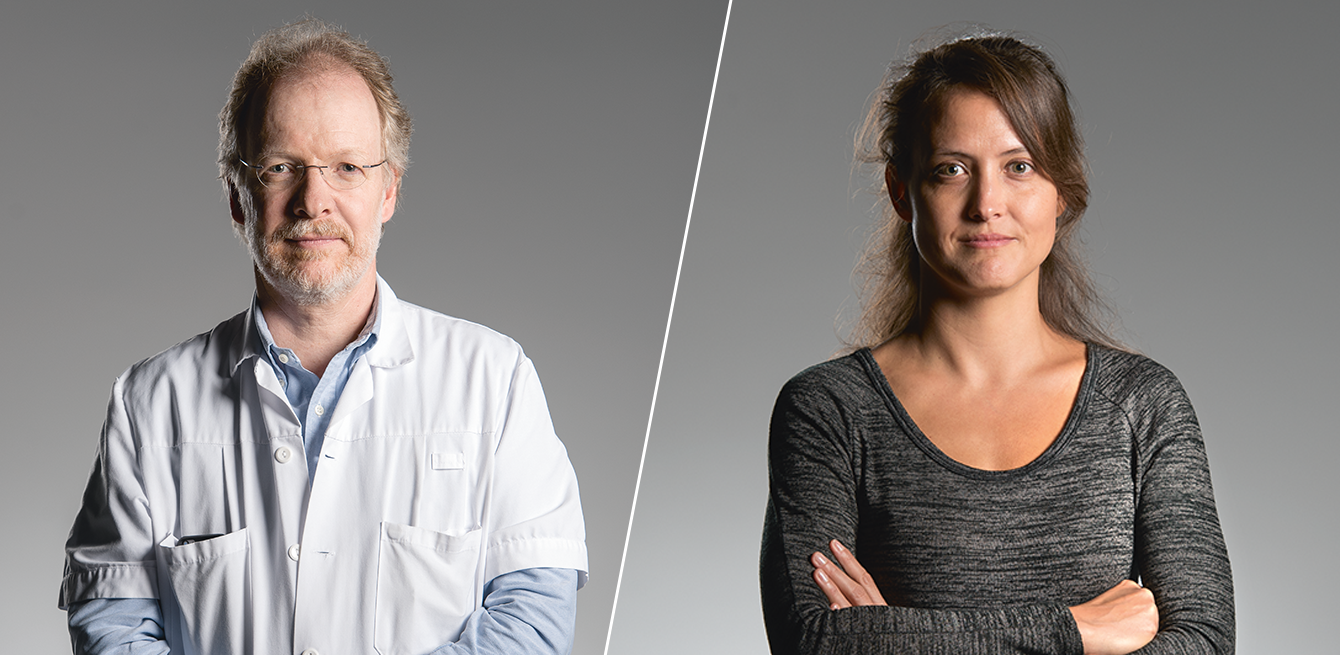
Together, they head up the Health and Societal Dialogue Commission.
At first glance, from a professional standpoint, it’s hard to see the similarities between Doctor Patrick Bodenmann and Aude Fauvel, a historian – other than their shared sense of intellectual rigour. However, since the end of 2016, the two have presided over the Health and Societal Dialogue Commission through the University Department of Community Health and Medicine at Lausanne University Hospital (CHUV). The purpose of the commission is to organise events that allow representatives of society as a whole to carry out in-depth discussions with health professionals. Participants are encouraged to engage in an exhaustive discussion and not take any shortcuts.
“In the public arena, quotes from specialists are often exaggerated or even exploited,” says Patrick Bodenmann, senior physician at the Policlinic Medical University (PMU) in Lausanne and chair of Medicine for Vulnerable Populations in Switzerland at UNIL. “There aren’t many opportunities where you can discuss nuances and a wide range of viewpoints regarding the body or healthcare,” says Aude Fauvel, specialist in medical humanities and senior lecturer at the Faculty of Biology and Medicine at UNIL. “However, there is a significant demand for this kind of dialogue among professionals and in the general public, and that is the need we are humbly trying to address.”
Their collaboration is a concrete example of how much health-related topics can benefit from this type of insight and a multi-disciplinary approach that includes input from physicians, other healthcare providers, social scientists, patients and specific populations.
“Patrick makes me consider what aspects of the past can be used to shed light on the future,” says Aude Fauvel.
“When we’re studying to become historians, we’re taught to steer clear of anachronisms. Working with Patrick, I’m learning that anachronisms aren’t necessarily taboo. Quite the opposite, actually – if medical history can be of use in the present, that’s a good thing.”
As a specialist in healthcare aimed at vulnerable populations, Patrick Bodenmann pays special attention to the social and cultural dynamics that influence health.
“Working with Aude helps me appreciate the weight of history. Our patients are often trapped within cycles that began long ago. We have to be aware of these patterns to provide effective treatment.”
Both insist on the need to look beyond the opinions of “experts” and one-sided viewpoints. The challenges posed by changes in medicine must be understood as the complex issues they are. /